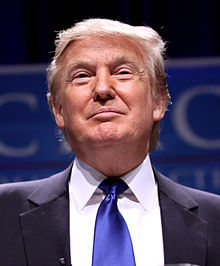
Non-college grads key to Trump victory
The Washington Post has an interesting article this morning suggesting that the key to businessman Donald Trump's victory in November is likely to be voters without a college education:
To win, Trump needs to get non-college grads to the polls. Here’s why that will be hard.
Donald Trump won the Republican nomination for president in large part because of voters who have not graduated from college. In the Indiana primary, for example, Trump won 47 percent of the vote among college grads — but 60 percent among those who had not earned a bachelor’s degree.
Will he be able to rally these less educated voters to win the general election in November? Given his difficulties with other groups of voters, his campaign might view this as an appealing strategy.
But for Trump to win the election this way, he would have to close the U.S. turnout gap between the more and less educated that reappears in every election. And that will be very difficult.
For years, political scientists have known about the voting gap between college grads and everyone else. In the 2012 presidential election, 58 percent of U.S. voters actually went to the polls to cast ballots. But that overall voter turnout rate disguises a lot of variation among those with differing levels of education. Only about 48 percent – or less than half — of voters who had only a high school degree cast ballots, while roughly 68 percent of voters who graduated from college went to the polls.
Trump has managed to break much of the conventional wisdom of how presidential campaigns are conducted (at least successful campaigns), and it's possible that he'll manage to close this gap and defy the experts here as well. But if your strategy relies on batting 1.000 against conventional wisdom, sooner or later that strategy is likely to fall short.



